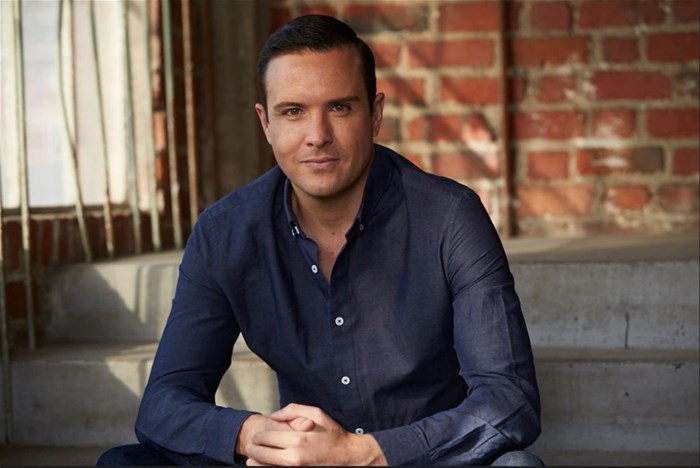South Africa’s political parties are all promising education reform with the upcoming elections, but will their plans deliver real change?

Dr Corrin Varady | image supplied
Voters must separate well-intentioned promises from practical solutions to identify if any of these plans can truly move the country’s education system from a culture of passing grades to one of achievement and global competitiveness.
Some proposed education policies sound promising on paper. However, a closer look reveals impracticalities for their execution at school, teacher or learner level.
Here are strengths and weaknesses of each manifesto to help translate some of the more practical concepts, providing actionable steps where necessary:
1. Digital learning crosses the political divide: Parties across the board recognise the need for digital learning as part of their policies.
Beyond its cost-effectiveness and potential to democratise access to quality education, digital learning can be used to execute a number of the solutions proposed in the various manifestoes such as mother-tongue or bilingual instruction and reducing student-to-teacher ratios, among others, thereby circumnavigating a number of the major roadblocks to the development of a culture of achievement.
2. Policing vs empowering teachers: The Democratic Alliance (DA), Rise Mzansi, and Patriotic Alliance (PA) have called for improved teacher training, proposing policies like mandatory competence testing for teachers and reinstating school inspectors to address ineffectiveness.
This, however, is an unfair and unrealistic policing approach that will add more fuel to the current teacher shortage fire. Research shows that entry-level graduate teachers’ pedagogy is not the problem.
We must engage educators to further understand what their professional and personal needs are.
We should also incentivise, not punish educators to achieve, innovate and pursue life-long learning. This approach could aid in attracting more teachers into the workforce which is a critical concern, particularly in science, technology, engineering and mathematics (STEM) subjects.
Jodi Poswelletski and Keitumetse Khutsoane 3 May 2024
3. Waving a magic wand won't equip educators with the necessary skills: We need to shift from an education culture that sees crisis as the only priority to one where achievement is the prime concern.
Doing so requires eschewing unenforced and impractical Continuing Professional Development (CPD) programmes and developing a more comprehensive and supportive approach to teacher training.
Perhaps the solution for producing more and better teachers, as well as for repairing the disconnect between theory and practice, lies in reopening teacher training colleges as suggested by the Inkatha Freedom Party (IFP) and United Democratic Movement (UDM).
While all parties agree on the provision of digital learning for pupils, this should also be included as a strategy to help teachers.
After all, increasing access to professional development for teachers is as important as increasing access to schools for learners.
Government needs to empower educators with digital resources that could help them in their professional journeys and with content mastery.
This could prove particularly useful in STEM subjects which have been highlighted as critical for the future by parties such as the African National Congress (ANC), Build One South Africa (BOSA), and African Christian Democratic Party (ACDP).
However, only the Economic Freedom Fighters (EFF) has explicitly recognised that if we are to incorporate digital learning into our education system, we need to ensure that our teachers are geared up to do so.
They aim to build high-tech teacher training colleges to equip educators of the future with adequate technological skills to impart to learners.
4. Curriculum reform for the future: A good education policy not only considers current challenges but also a long-term vision for the country and maps out how we get there.
For instance, the uMkhonto weSizwe (MK) Party and Freedom Front Plus (FF+) insist on aligning education with business needs and those of our economy.
ActionSA takes this a step further by advocating for education to be orientated towards global skills requirements, along with international educational trends and technologies.
These proposals will help to ensure that we have learners who can compete not only in the region but in the increasingly tech-focused and digitally driven world.
5. Repealing the 30% pass mark: BOSA and ACDP have proposed this, with the IFP seeking to raise the pass mark to 50%.
As it currently stands, for a learner to gain admission to a Bachelor programme at one of the country’s universities, they must attain a minimum of 50% in four subjects and a minimum of 40% to enter a Diploma programme.
By raising the pass mark, this could not only see more school leavers pursuing vocational, job readiness or tertiary education but could also potentially help to increase their employability.
6. Is matric the end of the road as we know it: The ANC and DA suggest a move away from the matric 'be-all, end-all' approach with the proposal of curriculum diversification to include more vocational and technical subjects.
However, this could inadvertently lead to an increased dropout rate from the formal education system and a surplus of graduates for a limited number of vocational jobs.
Perhaps a solution lies in parallel programmes that supplement basic education, exposing learners to different career opportunities without jeopardising their core academic foundation.
Considering these points, and with the likelihood of a coalition government, we must ensure that the parties we put into power are on the same page when it comes to reforms, and not just on the need for better education for all which is not enough anymore.
The end of ‘business as usual’ in education must now be the focal point for emerging education policy with realistic solutions that match budget, student and teacher needs as well as drive a culture for achievement.
We, as voters, have to be careful that political parties are not just selling us a dream and are able to deliver on their promises. Let's hold our elected officials accountable for delivering real educational reform.


































